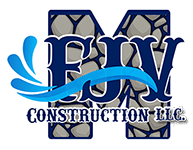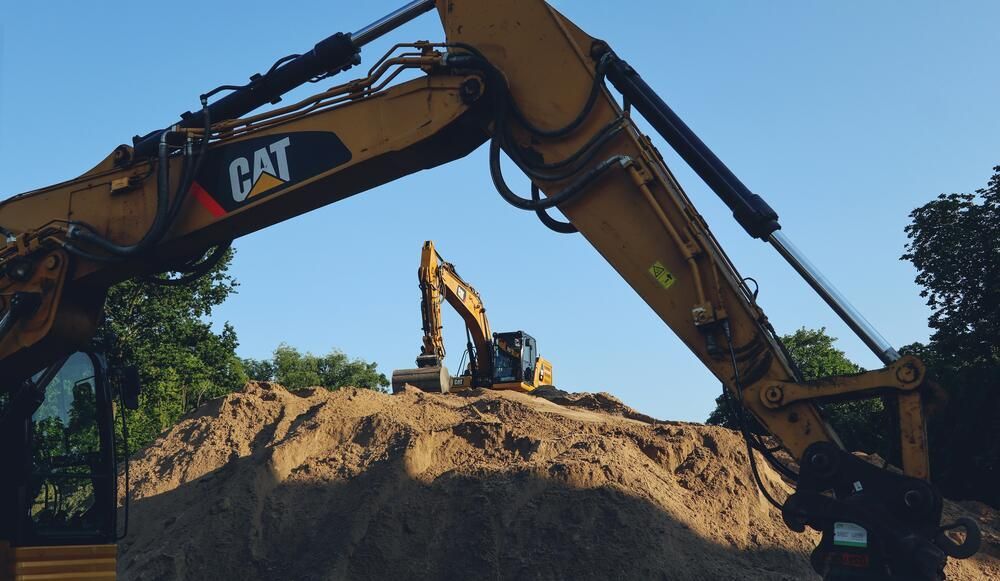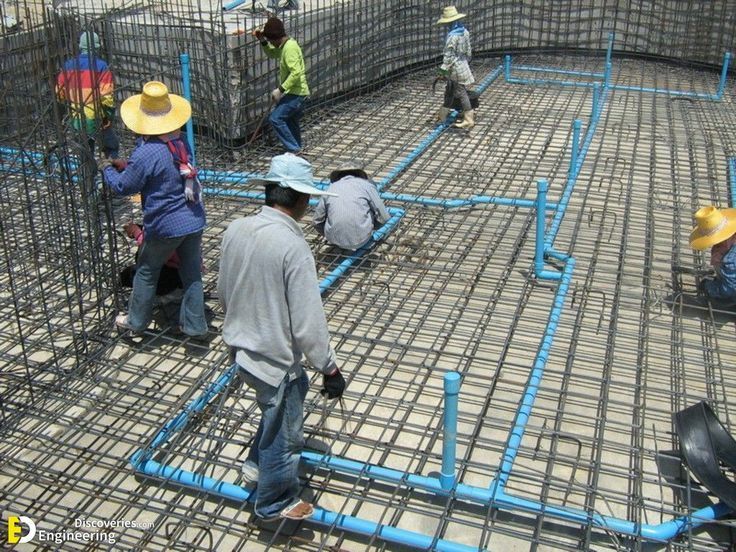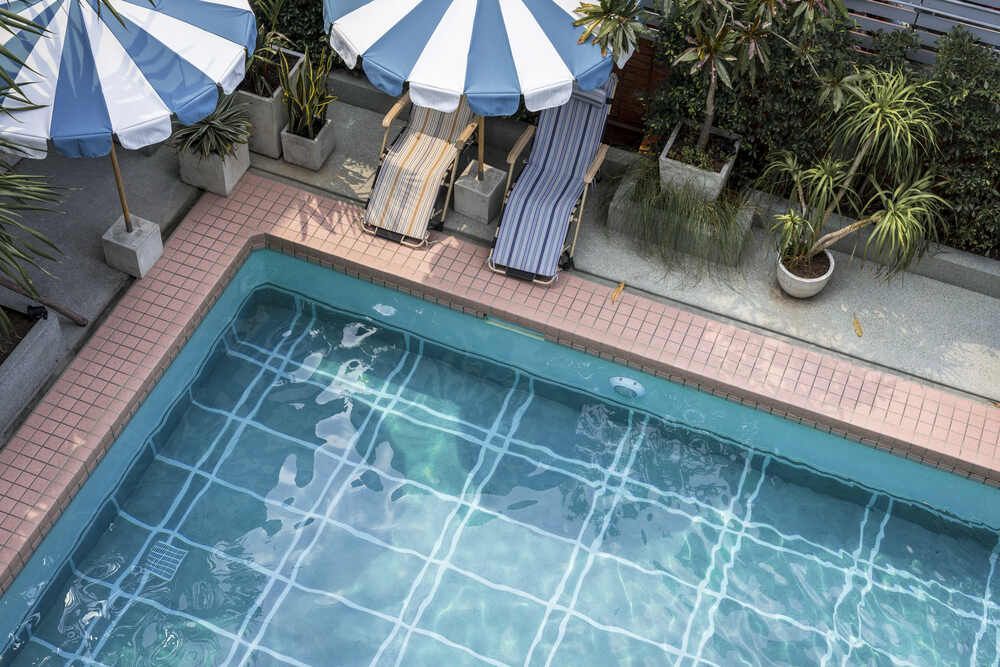9 Key Costs of Installing a Swimming Pool
Table of Contents
Key Takeaways
Introduction
9 Factors Influencing the Costs of Pool Installation
Common Mistakes to Avoid During Pool Installation
Maintenance Tasks Required After Pool Installation
Finding the Right Company for Your Pool Installation in Bethel, CT
Key Takeaways:
✔ Consider pool type, excavation, materials, labor, permits, features, maintenance, insurance, and long-term costs for accurate budgeting. for your pool installation project.
✔ Prioritize site selection, permits, planning, pool type, site prep, materials, drainage, safety, and budgeting for successful installation.
✔ Establish a consistent maintenance routine including cleaning, balancing chemicals, shock treating, filter upkeep, water circulation monitoring, structure inspection, and safety checks, to optimize pool condition and lifespan.
✔ Research, check credentials, review portfolios, consider expertise, compare quotes, inquire about installation, assess communication, evaluate warranty, and trust your instincts to choose the right pool installation company in Bethel, CT.
Swimming pool installation costs can be
between $20,000 and $100,000 depending on several factors. This includes the type of pool, its size, location, materials used, additional features, and local labor rates. Here's a breakdown of some typical costs involved in pool
9 Factors Influencing the Costs of Pool Installation
1. Pool Type
- The type of pool you choose significantly impacts the cost. Inground pools generally cost more than above-ground pools.
- Inground pools can be further categorized into concrete, fiberglass, and vinyl liner pools, each with associated costs based on materials and installation methods.
- Above-ground pools are typically more affordable and require less extensive installation than inground pools.
2. Excavation and Site Preparation
- Excavation costs involve digging the hole for the pool, leveling the ground, and removing any debris or obstructions from the site.
- The complexity of the excavation and site preparation can vary based on factors such as the size and shape of the pool, soil conditions, and access to the site.
- Additional costs may arise if special equipment or techniques are required for excavation, such as rock removal or dealing with groundwater.
3. Materials
- The materials used for constructing the pool significantly determine its cost.
- Concrete pools are durable and customizable but more expensive due to labor-intensive construction.
- Fiberglass pools are pre-formed and require less installation time, making them a more cost-effective option for some homeowners.
- Vinyl liner pools offer flexibility in design and are typically more affordable upfront, although they may require liner replacement over time.
4. Labor
- Labor costs include the fees for pool installation professionals, such as contractors, plumbers, electricians, and landscapers.
- The complexity of the installation, site conditions, and local labor rates can all impact labor costs.
- Custom features or special requirements, such as intricate tile work or water features, may require additional labor and increase overall costs.
5. Permits and Regulations
- Obtaining necessary permits and ensuring compliance with local building codes and regulations is essential for pool installation.
- Permit fees and required inspections contribute to the project's overall cost.
- Failure to comply with regulations can result in fines or delays, so it's essential to budget for permit-related expenses.
6. Additional Features
- Additional features such as waterfalls, lighting, heating systems, covers, decking, fencing, and landscaping can enhance the pool's functionality and aesthetics and increase the total cost.
- The cost of these features will vary depending on quality, complexity, and size.
7. Maintenance Equipment
- Essential maintenance equipment, such as filters, pumps, heaters, cleaners, and chemicals, is necessary to keep the pool clean and functional.
- The initial cost of purchasing these items should be factored into the overall budget for pool installation.
- Ongoing maintenance costs should also be considered, including replacing parts and supplies.
8. Insurance and Warranty
- Pool owners should consider the cost of insurance coverage for their pool, which may be required by their homeowner's insurance policy.
- Additionally, inquire about warranties the installer or manufacturers offer for the pool and its components.
- Understanding the terms and coverage of insurance policies and warranties can help protect your investment and provide peace of mind.
9. Long-Term Costs
- Beyond the initial installation expenses, it's essential to consider the long-term costs associated with pool ownership.
- These costs may include water and energy bills, regular maintenance and cleaning, repairs, and eventual replacement or renovation of the pool.
- Planning for these ongoing expenses ensures you can adequately maintain and enjoy your pool for years while staying within your budget.
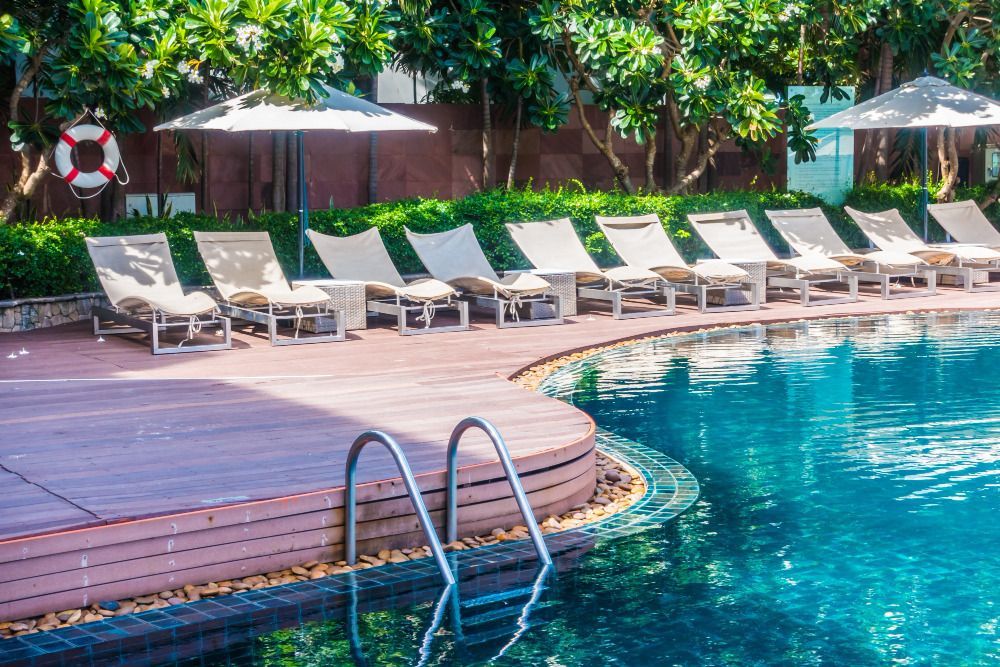
Common Mistakes to Avoid During Pool Installation
Various decisions and actions can significantly impact the outcome of installing a pool. Avoiding common pitfalls can save you time, money, and frustration while ensuring the successful completion of your pool project.
Here's a guide to help you steer clear of the most common mistakes associated with pool installation:
Poor Site Selection
- Selecting the wrong location for your pool can lead to various issues, including poor drainage, unstable ground, or limited sunlight.
- Avoid placing the pool near trees or large bushes whose roots could grow into the pool structure or cause debris to fall into the water.
- Ensure the chosen site has proper drainage to prevent water from collecting around the pool area, which could lead to flooding or erosion over time.
- Consider accessibility, privacy, and orientation to maximize enjoyment and functionality.
Skipping Permits and Regulations
- Failing to obtain the necessary permits and adhere to local building codes and regulations can result in costly fines, delays, or forced pool removal.
- Before starting construction, research the permitting requirements in your area and obtain all necessary approvals.
- Work with experienced professionals familiar with local regulations and ensure compliance throughout the installation process.
- Inspections may be required at various stages of construction to verify compliance and ensure the safety of the pool.
Inadequate Planning and Design
- Rushing through the planning and design phase can lead to costly mistakes or changes later in construction.
- Take the time to carefully plan your pool's layout, size, and features to ensure it meets your needs and preferences.
- Consider landscaping, hardscaping, and safety features when designing your pool area.
- Work with a reputable pool designer or contractor who can provide expert guidance and help bring your vision to life while staying within your budget.
Choosing the Wrong Pool Type or Size
- Selecting the wrong type or size of the pool for your property and usage needs can result in dissatisfaction and additional expenses down the road.
- When choosing a pool type and size, consider factors such as available space, budget, intended use, and maintenance requirements.
- Consult pool professionals to determine the best option for your circumstances and avoid making impulsive decisions.
- Remember that larger pools require more maintenance, water, and energy, so balance your desires with practical considerations.
Ignoring Site Preparation
- Neglecting proper site preparation can lead to structural issues, drainage problems, or uneven pool settling.
- Ensure the ground is leveled correctly and compacted before installing the pool to prevent shifting or sinking over time.
- Address any issues with soil composition, drainage, or groundwater that could affect the pool's stability and longevity.
- Clear the site of any debris, vegetation, or obstacles that could interfere with construction or pose safety hazards.
Cutting Corners on Materials and Construction
- Opting for low-quality materials or cutting corners during construction to save money can result in subpar performance and costly repairs in the future.
- Invest in high-quality materials and workmanship to ensure your pool's durability, safety, and longevity.
- Choose reputable suppliers and contractors with a proven track record of delivering quality results.
- Don't sacrifice essential features or safety measures to cut costs, as doing so could compromise the integrity of the pool and put users at risk.
Neglecting Proper Drainage and Water Management
- Poor drainage around the pool area can lead to water damage, erosion, and safety hazards.
- Ensure proper grading and drainage measures are in place to divert water away from the pool and surrounding structures.
- Install appropriate drainage systems, such as French drains or swales, to prevent water from collecting around the pool.
- Consider incorporating deck drains, gutters, and landscaping to manage rainwater runoff and minimize erosion.
Overlooking Safety Measures
- Failing to prioritize safety during pool installation can result in accidents, injuries, or even fatalities.
- Install appropriate safety barriers, such as fences, gates, or pool covers, to prevent unauthorized access and protect children and pets from drowning.
- Ensure all electrical components, such as lights and pumps, are installed and grounded according to safety standards to prevent shock hazards.
- Provide adequate lighting, signage, and non-slip surfaces to enhance safety around the pool area, especially at night or in low-visibility conditions.
Underestimating Ongoing Maintenance and Operating Costs
- Ignoring pool ownership's long-term maintenance and operating costs can lead to financial strain and frustration.
- Budget for routine maintenance tasks such as cleaning, chemical treatment, and equipment maintenance to keep your pool in optimal condition.
- When planning your budget for pool ownership, factor in ongoing expenses such as water and energy bills, repairs, and replacements.
- Regularly inspect and maintain your pool to identify and address issues before they escalate into costly problems.
Maintenance Tasks Required After Pool Installation
Once your pool installation is complete and the water is sparkling, it's essential to establish a regular maintenance routine to keep your pool in top condition. Regular maintenance not only ensures the longevity and functionality of your pool but also helps safeguard swimmers' health and safety.
Here's a list of essential maintenance tasks you'll need to perform after your pool installation to keep your oasis in pristine condition:
Regular Cleaning
- Skim the water's surface daily to remove leaves, insects, and other debris.
- Vacuum the pool weekly to remove dirt and sediment that settle on the bottom.
- Brush the walls and floor of the pool to prevent algae buildup and maintain water clarity.
Balancing Chemical Levels
- Test the water regularly using a pool testing kit to check pH, chlorine, alkalinity, and calcium hardness levels.
- Adjust chemical levels to maintain proper balance and prevent algae growth, cloudy water, or skin irritation.
- Follow manufacturer recommendations and local regulations when adding chemicals to the pool.
Shock Treatment
- Shock the pool regularly to kill bacteria, remove organic contaminants, and restore water clarity.
- Shock treatments should be performed weekly or as needed, especially after heavy pool usage, rainstorms, or periods of hot weather.
Filter Maintenance
- Clean or backwash the pool filter regularly to remove debris and maintain proper filtration.
- Replace filter media or cartridges as the manufacturer recommends to ensure optimal performance.
- Check for leaks or damage to the filter housing and repair or replace it as needed.
Inspect and Maintain Equipment
- Regularly inspect pool equipment such as pumps, heaters, and automatic cleaners for signs of wear, damage, or malfunction.
- Clean or replace filters, baskets, and seals to ensure proper operation.
- Schedule professional maintenance and servicing for equipment components according to manufacturer recommendations.
Monitor Water Level and Circulation
- Keep an eye on the pool's water level and adjust as needed to maintain proper circulation and skimming.
- Ensure water circulates effectively through the pool and filtration system to prevent stagnation and algae growth.
Winterizing (if applicable)
- If you live in a region with cold winters, winterize your pool properly to prepare it for the off-season.
- Lower the water level, clean and store pool accessories, and add winterizing chemicals to protect the pool from freezing and damage.
- Cover the pool with a secure and weatherproof cover to keep out debris and prevent algae growth.
Regular Inspection of Pool Structure and Surroundings
- Periodically inspect the pool structure, decking, and surrounding area for signs of damage, leaks, or deterioration.
- Repair cracks, chips, or other damage to the pool surface promptly to prevent further issues.
- Trim trees and vegetation near the pool to minimize debris and maintain proper airflow and sunlight exposure.
Safety Measures
- Ensure that safety equipment such as pool covers, fences, and alarms are in good working condition and comply with local regulations.
- Educate family and guests about pool safety rules and guidelines to prevent accidents and injuries.
- Regularly inspect and maintain safety equipment to ensure it remains effective in preventing unauthorized access to the pool.
Finding the Right Company for Your Pool Installation in Bethel, CT
Choosing the right company in Bethel, CT, to handle your pool installation is crucial for ensuring a smooth and successful project. With numerous options available, conducting thorough research and carefully evaluating potential candidates is essential.
Here are some key considerations to help you find the perfect company in
Bethel, CT, for your pool installation needs:
Research and Gather Recommendations
- Start by researching pool installation companies in your area. Look for companies with a strong reputation and positive reviews from past customers.
- Ask friends, family, neighbors, or colleagues who have recently had a pool installed for recommendations. Personal referrals can provide valuable insights into the quality of service different companies provide.
Check Credentials and Experience
- Verify that the companies you're considering are licensed, insured, and bonded to perform pool installation work in your area like FJV Construction - Bethel CT.
- Look for companies with extensive experience in the industry and a proven track record of successful pool installations. Ask how long they have been in business and how many projects they have completed.
Review Portfolios and References
- Request to see portfolios or photo galleries of past pool installations completed by the companies you're considering. This will give you an idea of their style, craftsmanship, and attention to detail.
- Ask for references from past clients and take the time to contact them to inquire about their experience working with the company. Ask about the quality of work, professionalism, communication, and overall satisfaction with the project.
Consider Specialization and Expertise
- Some companies specialize in specific types of pools or offer expertise in certain areas such as custom designs, eco-friendly options, or advanced technology.
- Consider your specific needs and preferences when choosing a company, and look for one that aligns with your vision for your pool project.
Get Multiple Quotes and Compare
- Request quotes from reputable pool installation companies to compare pricing, services, and included features.
- Be wary of unusually low or high quotes and ask for detailed breakdowns of costs to ensure you understand what's included.
- Remember that the cheapest option may not always be the best if it compromises quality or service.
Ask About the Installation Process
- Inquire about the company's installation process, timeline, and any potential disruptions or inconveniences to expect during construction.
- Ask about the materials, equipment, and techniques they use for pool installation to ensure quality and durability.
- Discuss your specific requirements or preferences for your pool project and ensure the company can accommodate them.
Communication and Customer Service
- Pay attention to the company's communication and responsiveness throughout the initial inquiry and quoting process.
- Choose a company that is transparent, responsive, and easy to communicate with. Good communication is essential for a successful project.
- Consider visiting the company's showroom or office to meet with staff and understand their professionalism and customer service.
Evaluate Warranty and After-Sales Support
- Inquire about the warranty provided for the pool installation and any included components or equipment.
- Ask about the company's policy on after-sales support, maintenance, and repairs, and ensure they offer ongoing services to help you maintain your pool in the long term.
Trust Your Instincts and Gut Feeling
- Ultimately, trust your instincts and choose a company you feel comfortable working with.
- Pay attention to how the company treats you as a potential customer and whether they genuinely care about your needs and preferences.
- Remember that your pool installation is a significant investment, so take the time to find a company that will deliver the desired results with professionalism and integrity.
Transform Your Backyard Oasis with FJV Construction - Bethel, CT
Ready to turn your backyard dreams into reality? Look no further than FJV Construction - Bethel, CT, for top-notch pool installation services! Our experienced team specializes in crafting stunning, customized pools that elevate your outdoor space and create lasting memories for you and your loved ones.
Whether you envision a sleek modern design or a luxurious resort-style retreat, we have the expertise to bring your vision to life.
Contact us today to schedule a consultation and let's make your dream pool a reality!"
Our Info
Monday to Friday from 7 am to 6 pm
Saturdays from 8 am to 5 pm
We Accept Cash and Checks
LOCATION
We Cover 80 Miles around Bethel,
Danbury, and Brookfield
Bethel, Connecticut 06801
Danbury, Connecticut 06810
Brookfield, Connecticut 06804
Navigation
Copyright FJV Construction, All Rights Reserved
